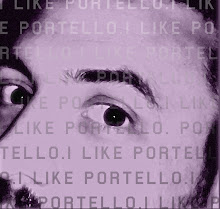 Moderators of religiously-themes blogs are notorious for filtering dissent or discussion.
Moderators of religiously-themes blogs are notorious for filtering dissent or discussion.
It’s hardly surprising. Rational discussion is the natural enemy of religion as theological arguments tend to crumble and fade away in its presence.
Case in point: voluble Christbot Bill Muehlenberg at Christianity Today. He had a little rant the other day about all those annoying atheists and that awful Catherine Deveny (particularly this article) and won’t they just leave us alone and anyway atheism makes no sense because how can you hate something that you think doesn’t exist.
Yawn.
I submitted a comment which (surprise surprise) wasn’t published, but I’ve learned to keep copies of such things.
Mr Muehlenberg, you got so close to indicating an understanding of the atheist's position a few times, before veering off. Let me show you a couple of turns you missed.
"They do this of course for at least two reasons: to discount the overwhelming longing for transcendence found among mankind, and to discredit those who are believers."
The first ... no. Simply not true. No atheist is interested in discounting the longing for transcendence. They merely point out that our modern religions provide a very poor imitation of it. Your second point is closer to the mark, but you show a lack of understanding of this with this later argument:
"They spend large hunks of their adult lives getting all hot and bothered about someone they claim does not exist."
Wrong. They get hot and bothered about the claims of believers and the things believers do in the name of someone that does not exist.
The closest you get to actual insight in your article was this:
"Indeed, in a totally materialistic world, our genes end up explaining – and causing – everything we do, believe or value. We are simply the product of our genes."
It's a little over-simplified, but pretty close to the mark. What exactly is your problem with this position? Any serious argument against atheism needs to address why this isn't the case, and yet you just threw it out there as if it is self-evidently wrong.
Let me ask you this, Mr Muehlenberg ... what evidence do you have that this statement is not true?
I may be waiting some time for a response.



2 comments:
I challenge atheists who say we just don't have our brains in gear: 166 years ago Abbott' s 'Flatland' showed that contiguous geometrical worlds explain where God is and why we can't see him. So we wrote 'Techie Worlds' for mechanical people and did the scientific thing: we looked at Christian teachings like the Trinity, like resurrection, judgment, the idea of a soul. In contiguous geometrical worlds these things are logical and understandable, even though to 'this-world-only' atheists they are ridiculous imaginings.
We see a lot of belief in devils, in miracles, in good and evil spirits. Just talk with your friendly Wiccas and Satanists. Their recognition of spirit worlds makes it more probable that our view of the world is correct. Besides, there is Pascal's wager, pointing out that Christian belief can reward while atheism surely leads to death. The labels: Thinking, Logical, Reasonable, Rational really belong to Christians more than to those proudly acclaimed agnostics. Get a copy of 'Techie Worlds' from www.amazon.com and see the reasonableness of Abbott's explanation.
GeorgeRic
Hi George. Thanks for stopping by.
The novel 'Flatland' (one of my favourite books, by the way) showed how beings from a higher dimension might appear if they were to pass through a lower dimension. The 2-dimensional protagonist of Flatland is amazed to see the 3-dimensional creature appear out of nowhere, change shape and disappear as it passes through the plane.
If 'Flatland' were to be used as a justification for religion, particularly Christianity, then it might be an argument as to why we see God the way we do, rather than a justification of why we don't see God at all. Given that, I could understand if it were to be used as an argument in support of Jesus' miracles, or to explain Jehovah's appearances in the Old Testament.
However this argument falls down, because there's no evidence that anyone has ever seen God, in any literal sense. All the claims of being 'touched by God', or 'having a personal relationship with God' that we hear today seem to be emotional claims, not evidence that someone has come into literal contact with a higher dimensional being.
If God is merely some higher dimensional creature who can interact with our dimension, then why do we see no evidence of that? Why do we see no 'miracles'? The residents of Flatland certainly did.
Regarding Pascal's Wager, this is simply a mess of logical fallacies.
First, it's an appeal to consequences.
And second, it's a false dichotomy. It implies that Christianity and Atheism are the only two choices, which is not the case. What about all the other thousands of religions?
Moreover, if this argument is to be applied consistently, then the 'best' religion, and the one we should all follow, is the religion that offers the most rewards. Is that Christianity?
The problem with both of these arguments is that they are post-hoc justifications. They are both failing to present any actual evidence in support of the Christian faith.
And there are so many things that could be presented as evidence!
You could start by proving that Jesus, as presented in the bible, actually existed and said the things attributed to him.
Post a Comment